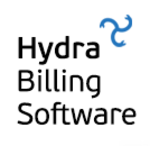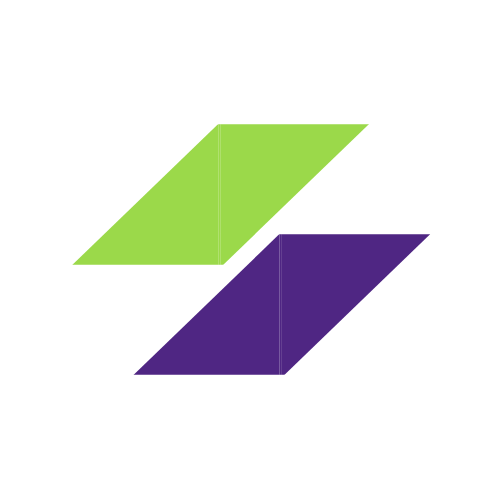Description

Hydra Billing

Cheddar
Comprehensive Overview: Hydra Billing vs Cheddar
Hydra Billing and Cheddar are both platforms used for managing billing processes, but they cater to different needs and offer distinctive features. Here's a comprehensive overview of each, focusing on their primary functions, target markets, market share, user base, and key differentiating factors:
Hydra Billing
a) Primary Functions and Target Markets:
-
Primary Functions:
- Hydra Billing offers comprehensive billing solutions with a focus on automation of billing processes. Its core functions include handling invoicing, managing subscriptions, providing payment gateways, and detailed analytics.
- The platform is versatile, allowing for customization and scalability which is ideal for growing enterprises.
- It supports complex pricing models and can handle high transaction volumes, making it suitable for businesses with sophisticated billing needs.
-
Target Markets:
- Targeted primarily at telecommunications companies, IoT providers, and large-scale service industries.
- Also caters to industries requiring a high level of billing customization, such as utilities and transportation.
b) Market Share and User Base:
- Hydra Billing tends to have a niche market presence due to its specialization in telecommunications and high complexity billing environments.
- Its user base primarily consists of enterprises and large organizations that need robust and highly tailored billing systems.
c) Key Differentiating Factors:
- Complexity and Customization: Known for handling complex billing scenarios and offering high levels of customization.
- Industry Focus: Strong emphasis on telecommunications and similar sectors needing intricate billing processes.
- Scalability: Designed for large-scale operations with high transaction volumes and dynamic business requirements.
Cheddar
a) Primary Functions and Target Markets:
- Primary Functions:
- Cheddar provides subscription billing solutions focusing on simplicity and ease of use. It handles recurring billing, subscription management, metered billing, and revenue recognition.
- Offers real-time analytics and reporting capabilities to assist businesses in monitoring their financial performance more effectively.
- Target Markets:
- Ideal for small to medium-sized SaaS (Software as a Service) companies and digital businesses looking for straightforward billing solutions.
- Startups and growing companies that require efficient billing without the complexity of enterprise-level solutions.
b) Market Share and User Base:
- Cheddar has a substantial presence among SaaS companies, especially those in the small to medium enterprise category.
- Popular among startups due to its ease of integration and user-friendly interface, leading to a broad user base in the tech sector.
c) Key Differentiating Factors:
- Simplicity and Ease of Use: Cheddar is designed to be intuitive, making it easy for smaller businesses to deploy without extensive IT resources.
- Focus on Startups and SMEs: Tailored towards businesses that prioritize simplicity and cost-effectiveness over complex billing features.
- Automation and Real-Time Data: Offers robust automation capabilities and real-time reporting, which is critical for companies needing dynamic financial insights.
Comparison Summary
- Market Focus: Hydra Billing is best for large enterprises in specific industries needing complex billing, while Cheddar caters to smaller businesses or startups that need straightforward, automated billing solutions.
- Flexibility vs. Simplicity: Hydra offers extensive customization for complex needs, whereas Cheddar shines with its simplicity and ease of deployment.
- User Base Diversity: Hydra serves specialized sectors with tailored needs, while Cheddar appeals more to the tech-driven SME sector.
Overall, the choice between Hydra Billing and Cheddar largely depends on the size of the business and the complexity and customization needed in billing operations.
Contact Info

Year founded :
Not Available
Not Available
Not Available
Bulgaria
http://www.linkedin.com/company/hydra-billing-solutions

Year founded :
2016
+1 917-267-2494
Not Available
United States
http://www.linkedin.com/company/cheddar-inc-
Feature Similarity Breakdown: Hydra Billing, Cheddar
When comparing billing and subscription management platforms like Hydra Billing and Cheddar, it's essential to look at their feature sets, user interfaces, and any unique aspects that might distinguish them from one another. Here's a breakdown based on typical features and industry standards:
a) Core Features in Common:
-
Subscription Management:
- Both platforms allow users to manage and automate subscription billing processes. This includes creating, modifying, and canceling subscriptions.
-
Recurring Billing:
- Each software provides tools for automating recurring billing cycles, supporting different billing frequencies and payment options.
-
Payment Gateway Integrations:
- Hydra Billing and Cheddar offer integrations with popular payment gateways to process credit card transactions, ACH payments, and other methods.
-
Invoicing and Billing:
- Both solutions generate invoices automatically and handle billing in multiple currencies, providing flexibility for global businesses.
-
Analytics and Reporting:
- They provide some level of analytics to track key metrics such as revenue, churn rates, and customer lifetime value.
-
Customer Management:
- Both platforms include features for managing customer accounts, including storing payment information and maintaining updated customer details.
-
Security and Compliance:
- SSL encryption, PCI compliance, and other security features are standard to ensure secure transactions and data protection.
b) User Interface Comparisons:
-
Hydra Billing:
- Typically, platforms like Hydra Billing may feature a more enterprise-focused interface, potentially offering extensive customization options suitable for larger organizations. This can sometimes result in a steeper learning curve for new users.
-
Cheddar:
- Cheddar often emphasizes ease of use, with a more straightforward and intuitive user interface designed for small to medium-sized businesses. The goal is typically to minimize setup complexity and simplify the billing workflow.
c) Unique Features:
-
Hydra Billing:
- Customizable Workflows: Hydra Billing might offer more advanced customization options for workflows, allowing businesses to tailor the software closely to their business processes.
- Enterprise Features: It could include advanced features like Dunning management, advanced fraud prevention tools, or more robust API capabilities to facilitate large-scale operations.
-
Cheddar:
- Simplicity and Speed: Cheddar might focus on rapid deployment and ease of integration, catering to businesses looking for quick solutions without extensive setup.
- Developer-Friendly: Known for its developer-friendly API, Cheddar may appeal to businesses that have technical resources to easily integrate and expand upon built-in functionalities.
While both platforms aim to streamline billing and subscription management, the specific requirements and preferences of a business, such as scalability needs, level of customization, and user experience priorities, will significantly influence the choice between Hydra Billing and Cheddar. Always consider conducting a demo or trial of each software to assess how well it aligns with your business needs.
Features

Not Available

Not Available
Best Fit Use Cases: Hydra Billing, Cheddar
Hydra Billing and Cheddar are both billing software solutions, but they cater to different types of businesses and use cases. Here's how they fit into different scenarios:
a) Hydra Billing
For what types of businesses or projects is Hydra Billing the best choice?
-
Telecommunications and Utilities:
- Hydra Billing is a robust choice for industries like telecommunications and utilities that require complex billing operations involving multiple services, subscription models, and real-time processing.
- It can handle large volumes of transactions and detailed billing structures, making it suitable for large-scale operations needing intricate billing systems.
-
Cloud and Hosting Services:
- Businesses in cloud and hosting services that offer flexible usage-based pricing models can benefit from Hydra Billing.
- The platform can efficiently manage dynamic resource allocations and track usage-based billing.
-
Mass Market Enterprises:
- Enterprises with large customer bases requiring scalable solutions with real-time rating, billing, and business operations.
-
Public Sector or Utilities:
- Can be used by public sector utilities that require customer account management along with specific billing cycles and adjustments.
b) Cheddar
In what scenarios would Cheddar be the preferred option?
-
SaaS Companies:
- Cheddar is generally well-suited for SaaS (Software as a Service) businesses that require subscription management and billing automation.
- Its design is focused on recurring billing, which is a core requirement for SaaS products.
-
Startups and SMEs:
- Small to medium-sized businesses and startups looking for straightforward subscription billing solutions with easy integration into their existing systems would benefit from Cheddar.
- It's user-friendly, making it suitable for businesses without extensive IT resources.
-
Recurring Revenue Models:
- Businesses across various verticals using recurring revenue models (e.g., subscription boxes, membership services) can leverage Cheddar's capabilities for managing continuous payment cycles.
d) Industry Verticals and Company Sizes
Hydra Billing:
- Industry Verticals: Telecommunications, utilities, cloud services, large public sector organizations.
- Company Sizes: Large enterprises and mass-market players due to its ability to handle complex billing operations and large amounts of data.
Cheddar:
- Industry Verticals: SaaS, subscription-based box services, small to medium-sized technology firms.
- Company Sizes: Primarily startups and SMEs, though it can also scale up to serve larger companies with simpler needs.
Both platforms are designed to streamline billing operations, but they fit distinct use cases based on complexity, industry requirements, and company size. Companies need to consider their specific business model, the volume of transactions, and billing intricacies when choosing between these two solutions.
Pricing

Pricing Not Available

Pricing Not Available
Metrics History
Metrics History
Comparing teamSize across companies
Conclusion & Final Verdict: Hydra Billing vs Cheddar
To provide a well-rounded conclusion and final verdict for Hydra Billing and Cheddar, let's analyze the value, pros and cons, and specific recommendations for users trying to choose between the two products.
Conclusion and Final Verdict:
a) Best Overall Value:
Considering all factors such as functionality, pricing, ease of use, scalability, and customer support, the best overall value depends on the specific needs of the user or organization. If your priority is flexibility and detailed feature set with robust customization, Hydra Billing might offer better value. In contrast, if you prioritize simplicity, ease of integration, and cost-effectiveness, Cheddar could be the better choice.
b) Pros and Cons:
Hydra Billing:
Pros:
- Customization: Offers a highly customizable platform, which can cater to complex billing requirements.
- Scalability: Capable of handling large volumes of transactions and scaling as business needs grow.
- Advanced Features: Includes features like multi-currency support and detailed analytics.
- Security: Strong security measures in place for data protection and compliance.
Cons:
- Complexity: May be overwhelming for smaller businesses or those without technical expertise.
- Cost: Potentially higher costs due to advanced features and customization.
- Implementation Time: May have a longer setup time due to the complexity and need for customization.
Cheddar:
Pros:
- User-Friendly: Known for its straightforward and easy-to-use interface.
- Quick Setup: Easier and faster to implement for new users.
- Cost-Effective: Generally more affordable especially for startups and small businesses.
- Integration: Seamless integration with many common tools and platforms.
Cons:
- Limited Customization: Less flexible in terms of tailoring the system to specific needs.
- Feature Limitations: May not have the depth of features required for larger or more complex organizations.
- Scalability Issues: May face limitations as business grows or if transaction volumes significantly increase.
c) Recommendations for Users:
-
Assess Business Needs: Users should start with a clear assessment of their billing needs—complexity, volume, budget, and growth projections. This will help in deciding which platform aligns best with their current and future requirements.
-
Consider Scalability: If you anticipate significant growth and need a system that can scale with you, Hydra Billing might be the better choice despite its higher initial complexity.
-
Evaluate Budget Constraints: For startups and small businesses with limited budgets, Cheddar offers a more cost-effective solution without a steep learning curve.
-
Test Both Solutions: Whenever possible, take advantage of demos or trial periods offered by both platforms to understand their usability and fit for your specific workflow.
-
Integration Needs: Consider the tools and systems currently in use within your organization. Cheddar's ease of integration might be beneficial if you rely heavily on specific third-party applications.
In summary, your choice between Hydra Billing and Cheddar should be guided by your organizational needs, budget, and future growth plans. Each platform has its strengths; aligning these with your requirements will ensure you choose the best solution for delivering value to your business.
Add to compare
Add similar companies




